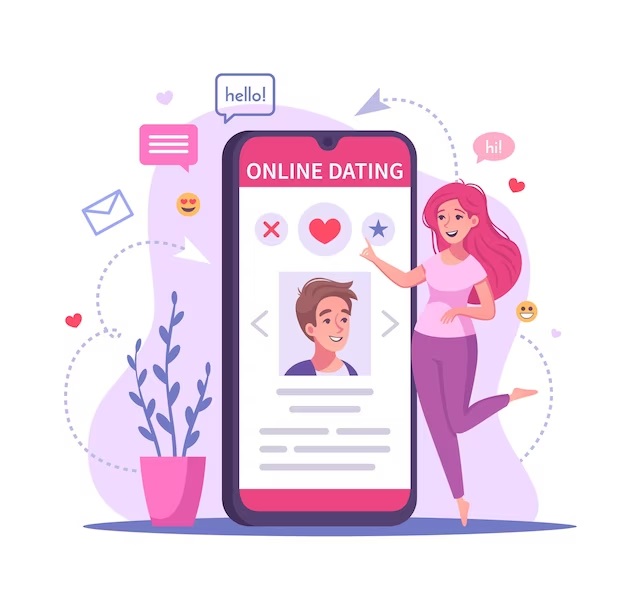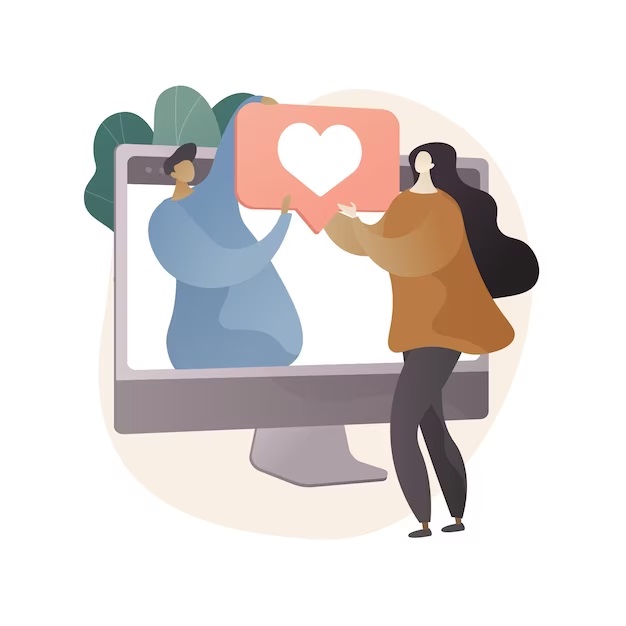How to Handle Rejection Gracefully Online
Dealing with Rejection Online
Dealing with rejection online can be a tough experience. Whether you are trying to make friends or looking for a romantic partner, rejection can be hurtful and damaging to your confidence. However, it is important to remember that rejection is a normal part of the online experience, and everyone experiences it at some point. The key is to not take it personally and to move on to the next opportunity. Investing in yourself, developing a positive attitude, and recognizing that rejection does not define you can help you move forward and see the online world as an opportunity for growth rather than an obstacle.
One of the main challenges of dealing with rejection online is managing your emotions. When someone rejects us, it can be easy to feel embarrassed, ashamed, or even angry. However, it is important to recognize that these emotions are a natural response and should not be ignored. Instead, take some time to reflect on the experience, identify what you can learn from it, and focus on what you can control. This may include practicing self-care, seeking support from friends or loved ones, or trying new approaches to your online interactions. By acknowledging your emotions and taking positive steps to manage them, you can bounce back from rejection and become more resilient in the face of future challenges.
Finally, it is important to remember that rejection online does not diminish your worth or value as a person. Social media and dating apps can make it easy to compare ourselves to others and feel like we are not measuring up. However, it is important to recognize that everyone has unique strengths and qualities that make them special. By focusing on what you have to offer rather than what you lack, you can develop a positive self-image and attract others who appreciate you for who you are. Ultimately, dealing with rejection online requires a combination of resilience, self-awareness, and a positive outlook. By taking care of yourself and recognizing your own worth, you can navigate the online world with confidence and ease.
Rejection Is Normal
Rejection is a seemingly universal aspect of life that can take many forms, including interpersonal rejection, job rejections, and creative rejections. Although many of us dread rejection and strive to avoid it, it is actually a normal and necessary part of personal and professional growth. Failure and rejection offer opportunities for learning, self-reflection, and resiliency-building that can help us to reach our full potential.
While rejection may initially feel discouraging, it is often a catalyst for change and growth in our lives. Learning to cope with rejection in a healthy and productive way can help us to build resiliency, persistence, and adaptability, which are essential skills for success in any area of life. Rather than viewing rejection as a personal failure, we can choose to see it as an inevitable part of the journey towards our goals and a valuable opportunity for growth and learning.
Moreover, experiencing rejection and failure can actually boost our confidence and motivation. When we overcome obstacles and persevere in the face of adversity, we build self-efficacy and a sense of agency over our lives. This sense of agency, in turn, can help us to set bigger and more ambitious goals, take calculated risks, and pursue new opportunities with greater confidence and resilience. Ultimately, although rejection can be painful in the moment, it is a necessary and valuable part of a life well-lived, and we can use it as a stepping stone towards our dreams.
Acknowledge Your Feelings
Emotions are a natural part of being human. They are an internal signal that helps us understand our environment and our reactions to it. However, emotions can be difficult to process and acknowledge. Oftentimes, we try to suppress our feelings or ignore them altogether. By doing this, we are denying a part of ourselves and hindering our ability to grow emotionally.
Self-awareness is an essential part of acknowledging our emotions. We need to be honest with ourselves and recognize that it's okay to not always feel happy or positive. Sometimes, we might feel frustrated, angry, or sad. Once we acknowledge these emotions, we can take steps to deal with them effectively.
It's important to remember that acknowledging our emotions doesn't mean we have to act on them. Sometimes, we may feel angry or upset, but we don't have to lash out or take our frustrations out on others. Instead, we can learn to sit with our emotions, explore the root cause, and find healthy ways to manage them. When we acknowledge our feelings, we can develop a deeper understanding of ourselves, enhance our emotional intelligence, and improve our relationships with others.
Talk It Out with Supportive Friends
Talking to supportive friends can be incredibly helpful when dealing with difficult situations or emotions. Sometimes, it can be hard to fully express our thoughts and feelings with just our own internal dialogue. By talking it out with people who care about us, we can gain new perspectives, have someone to empathize with us, and even receive helpful advice. Additionally, when we share our struggles with others, we can feel a sense of relief, as if we're no longer bearing the burden alone.
Of course, not all friends are created equal when it comes to providing support. Some may offer judgmental or dismissive responses, while others may simply lack the skills or time to fully engage with us. That's why it's important to carefully choose who we confide in. Look for those who have demonstrated the ability to listen empathetically, who genuinely care about your well-being, and who have shown good judgment in the past. Don't be afraid to have an honest discussion about what kind of support you need and how your friend can best offer it to you.
Finally, remember that support doesn't have to be one-sided. As much as our friends may be there for us, we can also offer them a listening ear and a caring heart when they need it. Being a supportive friend can strengthen the bonds of our relationships and provide mutually beneficial support for one another. So, don't hesitate to reach out to your friends when you need a sounding board, and be ready to offer your own support when they need it, too.
Set Boundaries
In today's fast-paced world, it can be tempting to say yes to everything and everyone. However, setting boundaries is essential to our overall well-being. By establishing clear limits on what we are willing and able to do, we can prevent burnout, reduce stress, and prioritize our own needs. This might involve saying no to certain requests or delegating tasks to others. It might also mean carving out time for self-care activities, such as exercise or relaxation.
Furthermore, setting boundaries can help us build stronger relationships with others. When we communicate our needs and limitations honestly, we enable others to understand us better and respect our choices. This can lead to more meaningful and fulfilling connections, both personally and professionally. Conversely, when we ignore our own boundaries, we may unintentionally push others away or create tension in our relationships.
Of course, setting boundaries is not always easy or comfortable. It may require us to confront difficult feelings or have difficult conversations. It may also require us to let go of the need to please others or be constantly available. However, by prioritizing our own well-being and communicating our boundaries clearly and respectfully, we can create a healthier and more balanced life for ourselves and those around us.
Get Comfortable with the Uncomfortable
Stepping out of our comfort zone is key to personal and professional growth. It allows us to explore new opportunities, learn new skills, and build resilience. However, it is common for us to avoid discomfort and stay within our safe boundaries. The fear of failure and rejection often hold us back from taking risks. To overcome this, we must embrace discomfort and make it a habit. The more we put ourselves in uncomfortable situations, the more we learn to cope with stress and uncertainty.
Learning to get comfortable with the uncomfortable requires a mindset shift. We need to reframe our thinking from viewing discomfort as a negative experience to a positive one. Instead of perceiving discomfort as a sign of weakness, we should see it as an opportunity to learn and grow. This shift in thinking can help us approach discomfort with more confidence and less anxiety.
Putting ourselves in uncomfortable situations can be challenging, but the benefits are manifold. Embracing discomfort helps us develop new skills, broaden our perspectives, and build self-confidence. It also helps us develop emotional resilience and adaptability, which are crucial in navigating life's challenges. So, the next time you find yourself avoiding discomfort, remember that stepping out of your comfort zone is where the magic happens.
Stay Objective
Staying objective is crucial in our daily lives, especially in decision-making processes. Objectivity requires us to avoid biases, emotions, and personal beliefs that may cloud our judgment. This is particularly true in situations where we need to make decisions based on facts and logic, such as in our career, relationships, or financial planning. By staying objective, we can minimize the chances of making mistakes, and maximize the chances of arriving at the best possible outcome.
In order to stay objective, we need to develop critical thinking skills, and be willing to challenge our assumptions and beliefs. This can be challenging, as we tend to feel more comfortable when we hold onto our existing beliefs and opinions. However, by being open-minded, and considering alternate viewpoints, we can broaden our understanding of a given situation, and make better-informed decisions. Additionally, staying objective requires us to be aware of our own biases, and work intentionally to mitigate the negative effects of these biases on our decision making processes.
Practicing objectivity in our daily lives can lead to many benefits, such as increased productivity, improved relationships, and greater emotional stability. By staying objective, we can make better use of our time and resources, avoid unnecessary conflicts and misunderstandings, and make better decisions overall. This can lead to greater success in all areas of our lives, from our professional goals to our personal relationships. Ultimately, staying objective is about seeing the world as it truly is, without judgment or preconceived notions. By doing so, we can live our lives more fully, and achieve the goals we set for ourselves.
Focus on What You Can Control
Ignoring what is beyond our control is easier said than done. It’s natural to get caught up in the external factors affecting our daily lives – the constant barrage of news, the opinions of others, and the never-ending demands of work and family. However, focusing on these external factors can be overwhelming and often result in feelings of helplessness or anxiety. Instead, it’s important to shift our focus to things we can control.
Identifying what we can control can be a helpful exercise. We may not have control over global pandemics, political turmoil, or natural disasters, but we do have control over how we react to them. We have control over our own thoughts, emotions, and actions. By focusing on what we can control, we empower ourselves to take action and make positive changes in our lives.
Focusing on what we can control also means acknowledging what we cannot control. It means accepting that some things are beyond our control and learning to let go. This is not to say we should ignore the things we can’t control, but rather that we should accept them and focus our energy on things we can control. By doing so, we can reduce stress, increase productivity, and ultimately lead happier, more fulfilling lives.
It's Not About You
When you hear the phrase 'it's not about you,' it can be easy to feel deflated or defensive. After all, we naturally prioritize our own thoughts, feelings, and desires. But it's important to recognize that this phrase isn't meant to diminish your worth or value. Rather, it's an invitation to consider the needs and perspectives of others. When we focus solely on ourselves, we can inadvertently cause harm or miss out on important opportunities to connect and grow. By expanding our awareness and empathy, we can build stronger relationships and make a positive impact on the world around us.
Practicing this mindset can take some effort and intentionality. It requires us to pause and reflect on our automatic responses and assumptions. We may need to ask questions, listen attentively, and broaden our perspectives. This doesn't mean we need to completely sacrifice our own well-being or boundaries, but rather, we can cultivate a balance between self-care and consideration for others. There may be times when we need to prioritize ourselves, and there may be times when we can choose to prioritize others. By approaching each situation with humility and a willingness to learn, we can navigate life's challenges with greater grace and compassion.
At the end of the day, it all comes down to a basic truth: we are all interconnected. Our actions, words, and attitudes can have ripple effects throughout our communities and beyond. When we recognize that our lives are intertwined with others, we can approach each interaction with a greater sense of purpose and meaning. We can seek to uplift and empower one another, rather than tearing each other down. So the next time you hear the phrase 'it's not about you,' don't take it as an insult. Instead, embrace the opportunity to learn and grow. The world needs more people who are willing to look beyond themselves and make a positive difference.
Do Something You Enjoy
Doing something you enjoy is not only a way to have fun and entertain yourself, but it can also contribute to your mental well-being. When you engage in activities that you genuinely like, you experience a sense of satisfaction and fulfillment. This creates positivity and reduces stress and anxiety. Moreover, hobbies and interests can connect you with like-minded people, expanding your social circle and promoting a sense of belonging.
Additionally, pursuing your passions can lead to personal and professional growth. By practicing and developing your skills in areas that interest you, you can challenge yourself and achieve goals that you may have never thought possible. You may even discover new talents and interests that can pave the way for new opportunities in your life. Moreover, pursuing hobbies and interests outside of work can provide a healthy balance, allowing you to unplug and recharge, which can improve productivity and reduce burnout.
Lastly, engaging in activities that you enjoy can help you foster a positive outlook on life. When you have something to look forward to and enjoy in your free time, it can increase your overall happiness and fulfillment. This sense of enjoyment can carry over into other areas of your life, making even mundane tasks more manageable and enjoyable. Ultimately, doing what you love can lead to a more meaningful and satisfying life.
Turn Rejection into an Opportunity
Rejection is a natural part of life that occurs in personal and professional settings. It can be difficult to receive rejection, as it can make you feel inadequate or as if you have failed. However, rejection can also be viewed as an opportunity to learn and grow. By reframing your perspective on rejection, you can leverage it as a way to improve yourself and your situation.
When faced with rejection, take a moment to reflect on the situation. Understand why you were rejected, and what you could have done differently. Use this knowledge to improve your future interactions and increase your chances of success. Additionally, rejection can be a motivator to work harder and strive for more. Use it as a catalyst to push yourself forward and to pursue new opportunities that may not have been considered before.
Rejection isn't easy to deal with, but by embracing it and using it as a tool for growth, you can turn it from an obstacle into an opportunity. Instead of letting it defeat you, use it as a stepping stone to success. Remember that everyone experiences rejection at some point, and it doesn't define you as a person or your potential for success. By staying positive and focused on your goals, you can use rejection as a way to motivate and inspire yourself to achieve greatness.
Seek Professional Help
Seeking professional help is not a sign of weakness. In fact, it takes tremendous courage and strength to acknowledge that you may need additional support and guidance. Many people may feel embarrassed or ashamed to seek help, but it is important to recognize that it is normal to struggle at times in life. Professional assistance can provide you with the tools and resources you need to overcome the challenges you are facing, and help you to begin to feel better.
If you are experiencing a mental health condition or are struggling with a personal issue, seeking help from a licensed mental health professional is an important step towards getting the treatment you need. Mental health professionals have the knowledge and expertise necessary to assess and diagnose mental health conditions and develop personalized treatment plans to meet your specific needs. They can also provide you with support and guidance throughout your treatment journey.
It can be difficult to open up to someone about your personal struggles, but seeking help can be a transformative experience. By talking to a mental health professional, you can gain new perspectives, learn coping strategies, and build resilience. Seeking professional help is an act of self-care and shows that you are taking responsibility for your mental health and well-being. Remember, you do not have to face your challenges alone – there is support available to help you navigate through even the toughest times.
Develop Healthy Coping Skills
Developing healthy coping skills is essential for maintaining emotional well-being. Coping skills are habits that help individuals deal with difficult situations and emotions in a constructive and positive manner. They enable people to manage stress, anxiety, and other overwhelming feelings, which improves mental and physical health. There are a variety of effective coping strategies, including mindfulness, exercise, social support, and relaxation techniques. Developing healthy coping skills can help individuals build resilience and bounce back from adversity with greater ease.
Mindfulness is a technique that involves paying attention to the present moment with an open and non-judgmental attitude. This practice can help individuals become more aware of their thoughts and emotions, which can help them manage these experiences more effectively. Exercise is another great coping strategy that can boost mood and reduce stress. Engaging in physical activities like yoga, running, or dancing releases endorphins, which are natural mood boosters. Additionally, social support can provide a healthy outlet for expressing emotions and seeking validation or advice. Talking with friends or joining support groups can help individuals feel less alone and more connected.
In conclusion, developing healthy coping skills is a vital part of self-care and emotional well-being. Individuals who can manage stress and difficult emotions in a constructive manner are more resilient and better equipped to handle life's challenges. Mindfulness, exercise, social support, and relaxation techniques are all effective strategies for building healthy coping skills. By committing to these habits, individuals can improve their mental and physical health and enjoy a more balanced and fulfilling life.



